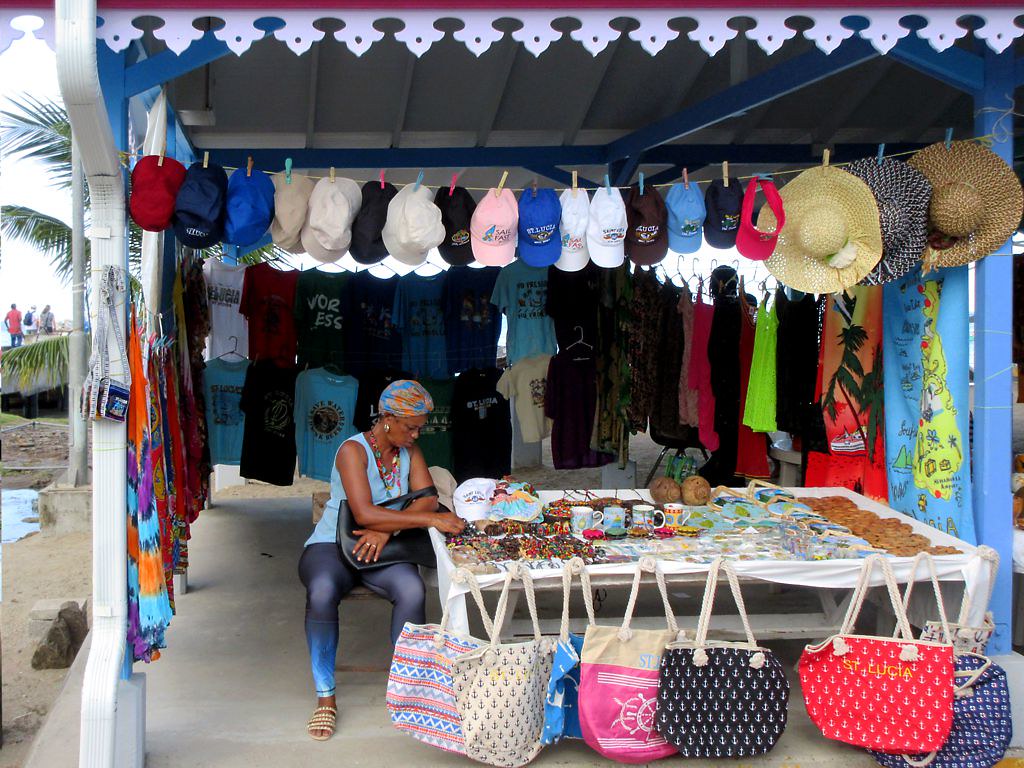Addressing the Gender Wage Gap in Saint Lucia
 Wage disparities between men and women are a significant issue globally, and the gender wage gap in Saint Lucia is no exception. Despite some progress, women on the island still earn less than men for performing the same work. Factors such as restrictive societal norms and domestic responsibilities heavily contribute to this gap. Efforts are advancing to improve these conditions, but Saint Lucia still has a long way to go before achieving wage equality.
Wage disparities between men and women are a significant issue globally, and the gender wage gap in Saint Lucia is no exception. Despite some progress, women on the island still earn less than men for performing the same work. Factors such as restrictive societal norms and domestic responsibilities heavily contribute to this gap. Efforts are advancing to improve these conditions, but Saint Lucia still has a long way to go before achieving wage equality.
Gender Wage Gap in Saint Lucia
The gender wage gap in Saint Lucia reflects broader inequalities within the job market. Women make up 62.9% of the labor force, significantly trailing men at 75.6%. This disparity does not result from a lack of motivation or capability, but is largely due to the weight of unpaid domestic work carried by women. These societal expectations limit women’s full participation in the workforce, reducing their economic independence and contributing to poverty.
Also, the insufficient accommodations and resources available to support mothers balancing family responsibilities play a significant role in the high poverty rates among women in Saint Lucia. Because women frequently occupy lower-paying jobs, they have less access to the social protections that often receive funding from insurance and social security contributions, which puts them at a further disadvantage compared to their male counterparts.
Power of Education
According to UN Women, women in Saint Lucia earn approximately 10% less than men. However, data from the Saint Lucia Central Statistical Office shows that higher levels of education correlate with a smaller wage gap. This demonstrates the importance of access to quality education in empowering women and enhancing their earning potential. Investments in education are key to addressing the gender wage gap in Saint Lucia and alleviating poverty.
However, Saint Lucia has made meaningful strides in empowering women and promoting educational opportunities that play a crucial role in advancing gender equity among the workplace. Ongoing commitment to these initiatives remains important for further closing the income divide and building a society that thrives on principles of equality and fairness.
Time for Change
One promising initiative tackling the gender wage gap in Saint Lucia is the Renewable Energy Sector Development Project, launched by the World Bank. This clean energy initiative prioritizes gender inclusion by awarding scholarships to women in engineering fields. Since its start in July 2022, the program has awarded 17 scholarships to women pursuing degrees in electrical and mechanical engineering, fields historically dominated by men. This program offers a path for women to access higher-paying, high-demand jobs in the STEM field, thereby helping reduce the gender wage gap in Saint Lucia.
Recently in Saint Lucia, young ladies gathered with female leaders to discuss women’s empowerment and networking. The Department of Gender Affairs organized the event in partnership with the UN Women Multi-Country Office through the Build Back Equal Programme. The stories that these leaders shared inspired the girls, showing them that individuals like themselves can thrive despite facing institutional barriers. This event marked the beginning of more opportunities for young women to gain knowledge and feel empowered in their professional journeys.
The milestones achieved through initiatives like the Renewable Energy Sector Development Project and the Build Back Equal Programme are very meaningful. By actively creating spaces for women to enter and thrive in traditionally male-dominated fields, these programs help close the gender pay gap and also lay the groundwork for stronger economic development across Saint Lucia.
Looking Ahead
Despite the country’s small population of under 180,000, Saint Lucia is making bold strides toward gender equity. Such progress deserves greater recognition. Highlighting these efforts brings much-needed attention to the power of investing in women. When women gain access to quality education, professional mentorship and high-paying careers, the benefits extend outward; strengthening families, communities and the nation as a whole. Empowering women is not only a matter of fairness; it is a bridge for a more resilient society.
– Knia Parks
Knia is based in Pepper Pike, OH, USA and focuses on Good News and Politics for The Borgen Project.
Photo: Flickr
